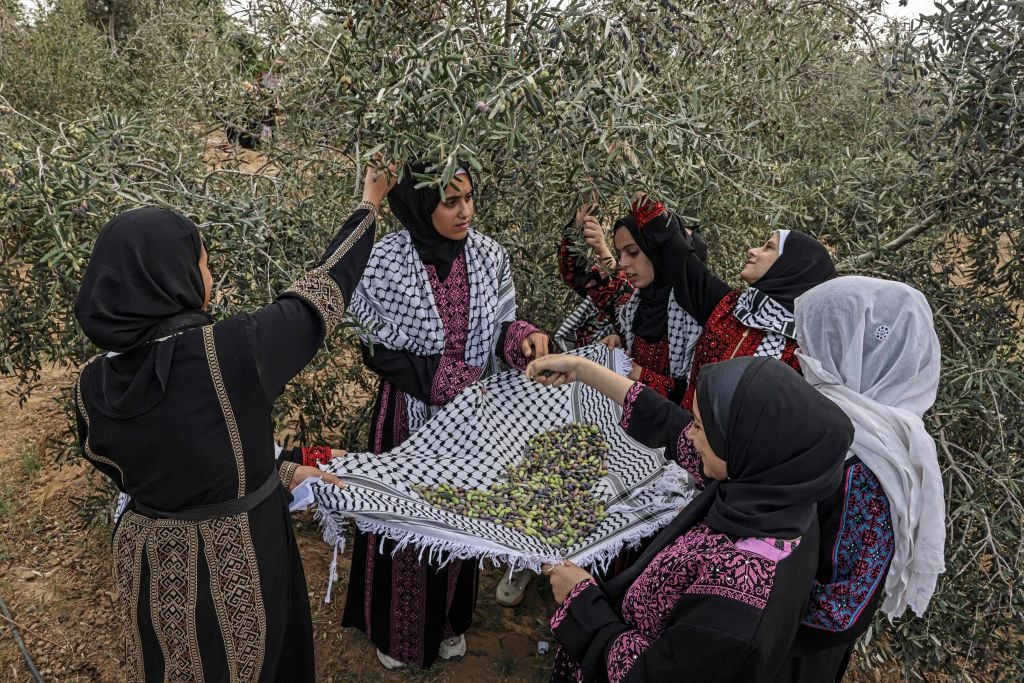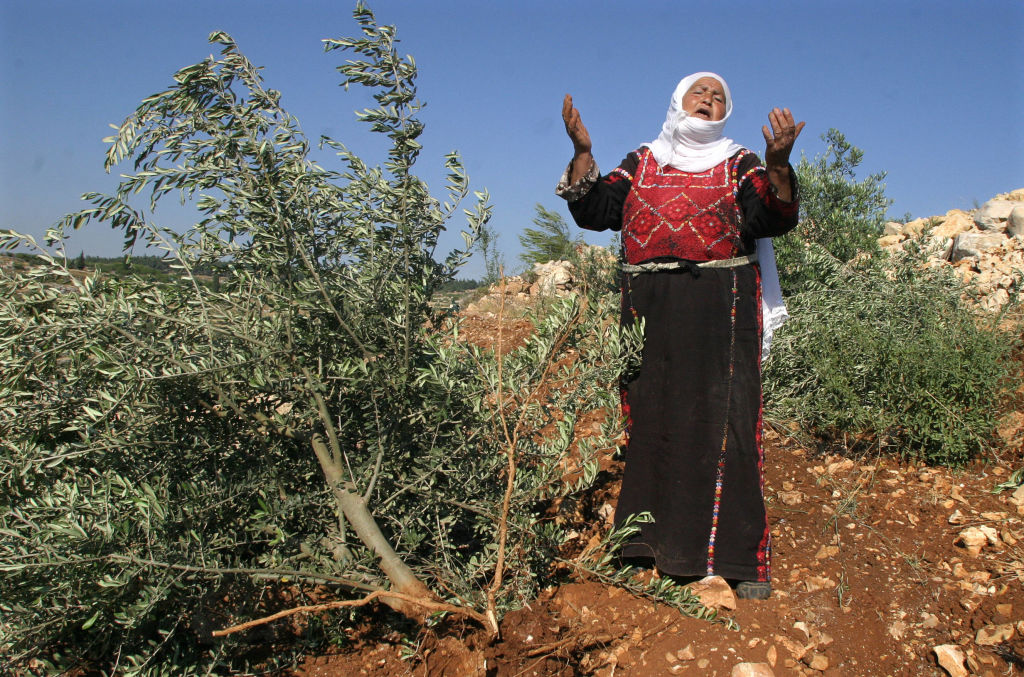Art World
A Palestinian Activist Art Project Is Named as an Official Collateral Event of the Venice Biennale
The organization Artists + Allies x Hebron was co-founded by Berlin-based artist Adam Broomberg and Palestinian activist Isso Amro.

The organization Artists + Allies x Hebron was co-founded by Berlin-based artist Adam Broomberg and Palestinian activist Isso Amro.

Jo Lawson-Tancred

An exhibition by the Palestinian organization Artists and Allies of Hebron has been named as one of 30 officially sanctioned Collateral Events for the 60th Venice Biennale, which opens to the public on April 20, 2024, and runs through November 24, 2024. Each year, this program runs alongside the national pavilions and the main exhibition, which is being curated by Adriano Pedrosa for the next edition under the theme of “Foreigners Everywhere.”
The announcement came shortly after it was reported in ARTnews that the Connecticut-based Palestine Museum U.S., which organized an exhibition of Palestinian art as a Collateral Event for the last Venice Biennale in 2022, had its proposal for next year rejected on October 20. Palestine has never had a national pavilion because Italy is among the countries that does not recognize it as a sovereign state.
“When we wanted tell the real Palestinian story, the Biennale has decided to join the European governments in a blackout,” said the museum’s director Faisal Saleh. The show would have been called “Foreigners in their Homeland,” and was intended “to shed light on the conditions that Palestinians suffer from, including living under an apartheid situation and checkpoints.” Saleh hopes to unofficially exhibit the same show at the Palazzo Mora of the European Cultural Centre.
Founded by the Hebron-based Palestinian activist Issa Amro and the Berlin-based South African photographer Adam Broomberg, Artists and Allies of Hebron will present Anchor in the Landscape. This series of photographs by Broomberg and Rafael Gonzalez features olive trees in Palestine, some of which are thousands of years old. These plants have long been threatened by Israeli occupation, with more than 800,000 destroyed since 1967. Olive farming is the main source of income for thousands of Palestinian households.

A Palestinian woman laments the destruction of her olive trees in the West Bank village of Beit Surik in 2005. Photo by HAZEM BADER/AFP via Getty Images.
“The olive tree performs the totemic role for the Palestinian identity, of culture, resistance, agrarian sovereignty and intergenerational tradition,” read a description of the project on Broomberg’s website. “It also symbolizes the unwavering resilience of the Palestinian people in their ongoing resistance against their living struggle under Israel’s military oppression.”
Last year, olive trees were also featured in Artists and Allies’s Counter Surveillance, an art project that drew attention to the Israeli military’s near-constant surveillance of Palestinians living under occupation. Recently, this has included a network of CCTV cameras that monitor the West Bank city of Hebron in real time and sophisticated facial recognition systems that scan Palestinians when they pass a checkpoint.
“From the moment you leave your house to the moment you get home, you are on camera,” said Amro.
Artists and Allies of Hebron secretly installed its own camera in an olive grove and transmitted a livestream to museums across Europe, including Sweden’s Bonniers Konsthall in Stockholm and Amsterdam’s FOAM on September 13, 2022. The intention was to take a technology that has been used to monitor and control the local population and repurpose it as a means of protecting Palestinian culture. The camera would keep a vigilant eye over the olive trees while locals were recorded tending to the plants, which Artists and Allies of Hebron see as an everyday act of resistance.
A book about Anchor in the Landscape will be published by Mack Books in April 2024 to accompany the exhibition. It will feature an essay by Dr. Irus Braveman, a Jerusalem-born expert on the politics of tree planting and uprooting in Israel/Palestine.
More Trending Stories:
Agnes Martin Is the Quiet Star of the New York Sales. Here’s Why $18.7 Million Is Still a Bargain
Mega Collector Joseph Lau Shoots Down Rumors That His Wife Lost Him Billions in Bad Investments
Gerhard Richter’s Abstract Alpine Landscapes Will Converge at a Three-Venue Survey in St. Moritz